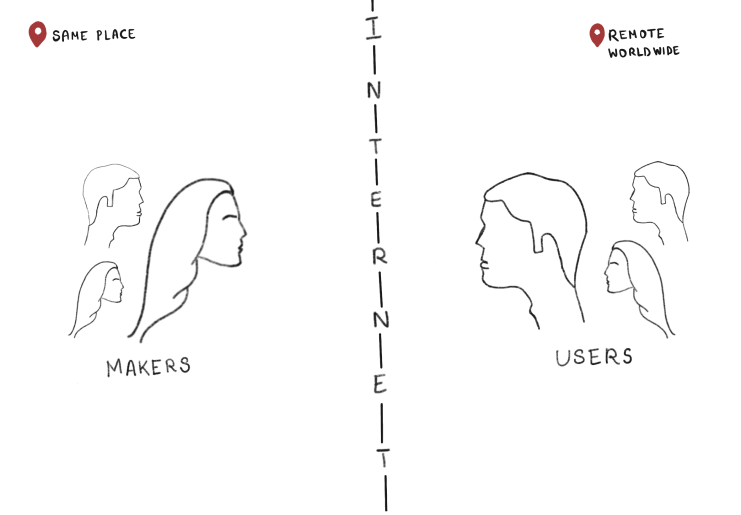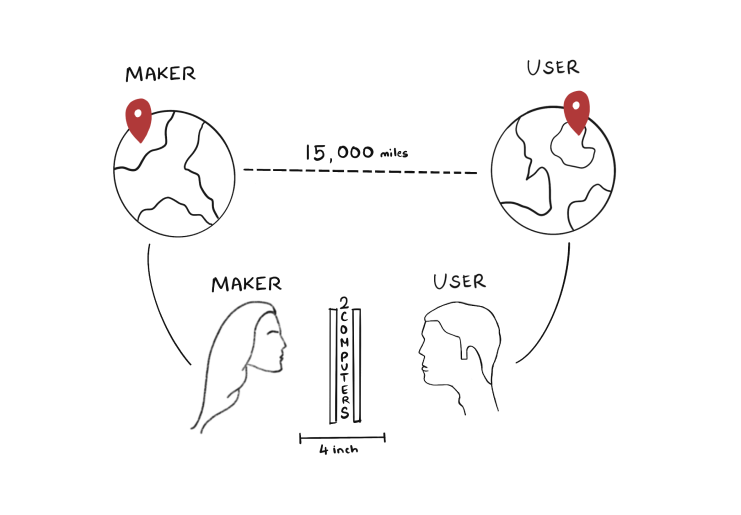Users have always been remote
20 Feb, 2023
Users have always been remote.
Except on the internet, most business function through physical presence. Doctors, lawyers, restaurants, grocery stores, real estate, gold, other commodities, and more require physical interaction for the most part.
Now the internet has changed the way a lot of businesses work. Twitter, Instagram, Youtube, Google, Email, ChatGPT, and Netflix are some examples of internet businesses that have only REMOTE users 🌏
The internet was the beginning of the remote culture. It allowed makers to build for remote, worldwide users. Makers have more or less built products for people across the world. The bridge (/"""\) between makers and users is the internet. Makers talk to the users by connecting diagrams (UI) and texts (copies) through a heuristic flow (UX).
Makers /"I"N"T"E"R"N"E"T"\ Users

How to optimize for remote users:
- Be your user
- Flow Analysis
- User personas
- Cognitive Maps
- Draw the experience
⬆️ Are some of the ways to understand the bigger picture and make sure makers communicate the right thing to the user. It's simply trying to understand and build something for someone sitting 10,000 miles away but only 4 inches from you :O (This statement is a drawing ⬇️)

Products and services are all about communicating your offer to the user. So you need to make sure:
- The use of the product is clear
- Visuals match the product
- Flows are simple
- Outcomes are as expected
- Human and authentic
More often than not, users feel a product is the reflection of the computer rather than a human. Do you ever feel like some products feel inhuman and that you're interacting with the computer and not a bunch of people behind it?
Interface is what establishes the relationship between makers and users. Knowing how to build authentic interfaces is a skill no one talks about, which is the core of any internet product.
Heuristic interface scales the product and helps the user from anywhere, any distance, to comprehend and use the product.